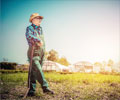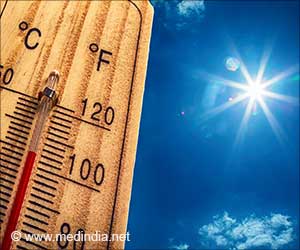- Older people and hot weather - (https://www.sahealth.sa.gov.au/wps/wcm/connect/public+content/sa+health+internet/healthy+living/protecting+your+health/environmental+health/healthy+in+the+heat/older+people+and+hot+weather#:~:text=Physical%20changes%20happen%20as%20you,cool%20their%20body%20by%20sweating.)
- Heatwaves and the elderly - (https://www.racgp.org.au/getattachment/1ffda050-4245-437a-a234-8ad4acdcd3cc/Heatwaves-and-the-elderly.aspx)
About
Heatwaves can be dangerous for everyone, but especially for older adults. Their bodies may not adjust to rising temperatures as effectively, putting them at higher risk of heatstroke, a serious medical emergency. Physical changes happen as you get older, and you may be less likely to notice you are becoming overheated or dehydrated, and some medications can make this worse. Older people are also less able to cool their bodies by sweating.
Some medicines can make you more prone to sunburn and heat stress, so it is important to watch for signs of being affected by hot weather.
Did You Know?
Seniors are at a higher risk of heatstroke due to less efficient temperature regulation.Heatstroke Warning Signs
Elderly individuals need to be cautious of heatstroke warning signs because their bodies are less efficient at regulating temperature, making them more susceptible to heat-related illnesses. Prompt recognition and response to these signs can prevent serious health complications and potentially save lives(1✔ ✔Trusted Source
Older people and hot weather
Go to source).
Some warning signs to consider are:
- High body temperature (above 103°F)
- Confusion, disorientation, or dizziness
- Excessive sweating or no sweating at all
- Rapid, shallow breathing
- Nausea or vomiting
- Headache
- Muscle cramps or weakness
If you suspect heatstroke, call the emergency service immediately.While waiting for help, move the person to a cool, shaded area and loosen their clothing. Wet their skin with cool water and fan them to promote evaporation.

Heatwave Effects
Heatwaves can have a significant impact on health, causing:
- Heatstroke: This is the most serious heat-related illness, and it can be fatal if not treated promptly.
- Heat exhaustion: Symptoms include heavy sweating, weakness, nausea, and dizziness.
- Worsening of chronic health conditions: Heat can exacerbate heart problems, respiratory issues, and diabetes.
- Mental health issues: Heatwaves can lead to anxiety, depression, and sleep problems.
Staying Cool during Summer/ Heatwave
Hydration is Key:
Drink plenty of fluids throughout the day, even if you don't feel thirsty. Water is the best choice, but sugar-free drinks or diluted fruit juices can also be helpful. Avoid alcohol and caffeinated beverages, as they dehydrate you.Limit Movement:
Limit strenuous activity outdoors, especially during the hottest part of the day (typically between 10 am and 4 pm). Take cool showers or baths to lower your body temperature. Wear loose, lightweight, and light-colored clothing made from breathable fabrics like cotton.Air Conditioning is Your Friend:
Spend time in air-conditioned spaces like libraries, malls, or senior centers. If your home doesn't have air conditioning, consider using fans or creating airflow with open windows at night.Support Elderly To Manage Heat
Supporting the elderly in managing heat is crucial because they are more vulnerable to heat-related illnesses due to age-related physiological changes and often have underlying health conditions that can be exacerbated by high temperatures. In addition, ensuring their comfort and safety during extreme heat can significantly improve their overall quality of life and well-being(2✔ ✔Trusted Source
Heatwaves and the elderly
Go to source).
Some ways we can help our elderly civilians are,
- Update them regarding weather forecasts regularly and be aware of heat advisories.
- Plan ahead by stocking up on non-perishable food and bottled water in case of power outages.
- Check on elderly neighbors or relatives who live alone, especially during heatwaves.
- Close curtains or blinds facing the sun during the day. Weatherstrip doors and windows to keep the air cooler inside.
By following these tips and staying informed, seniors can stay safe and healthy during even the hottest days. Remember, heatstroke is preventable. Taking action and prioritizing cooling methods can make all the difference.










